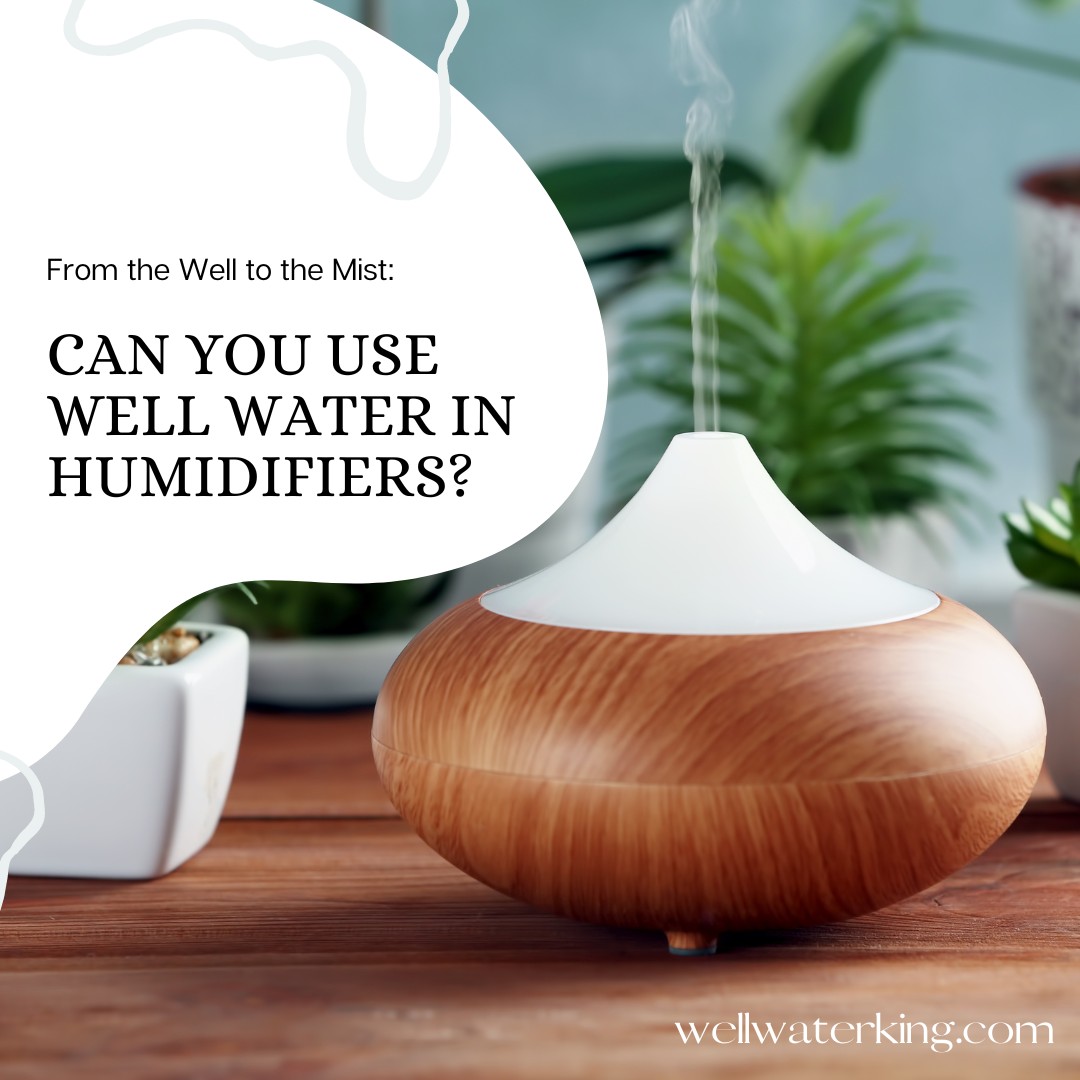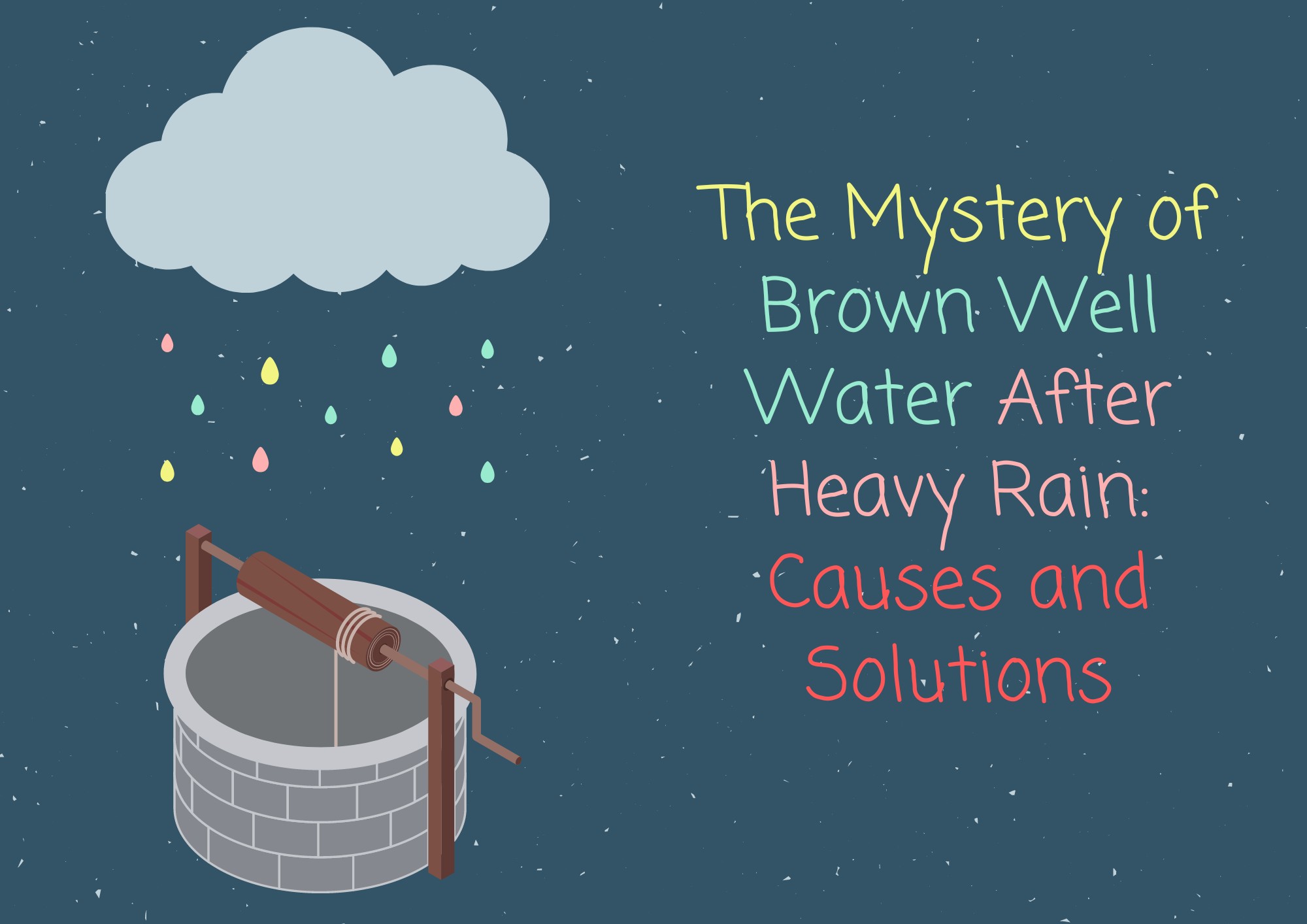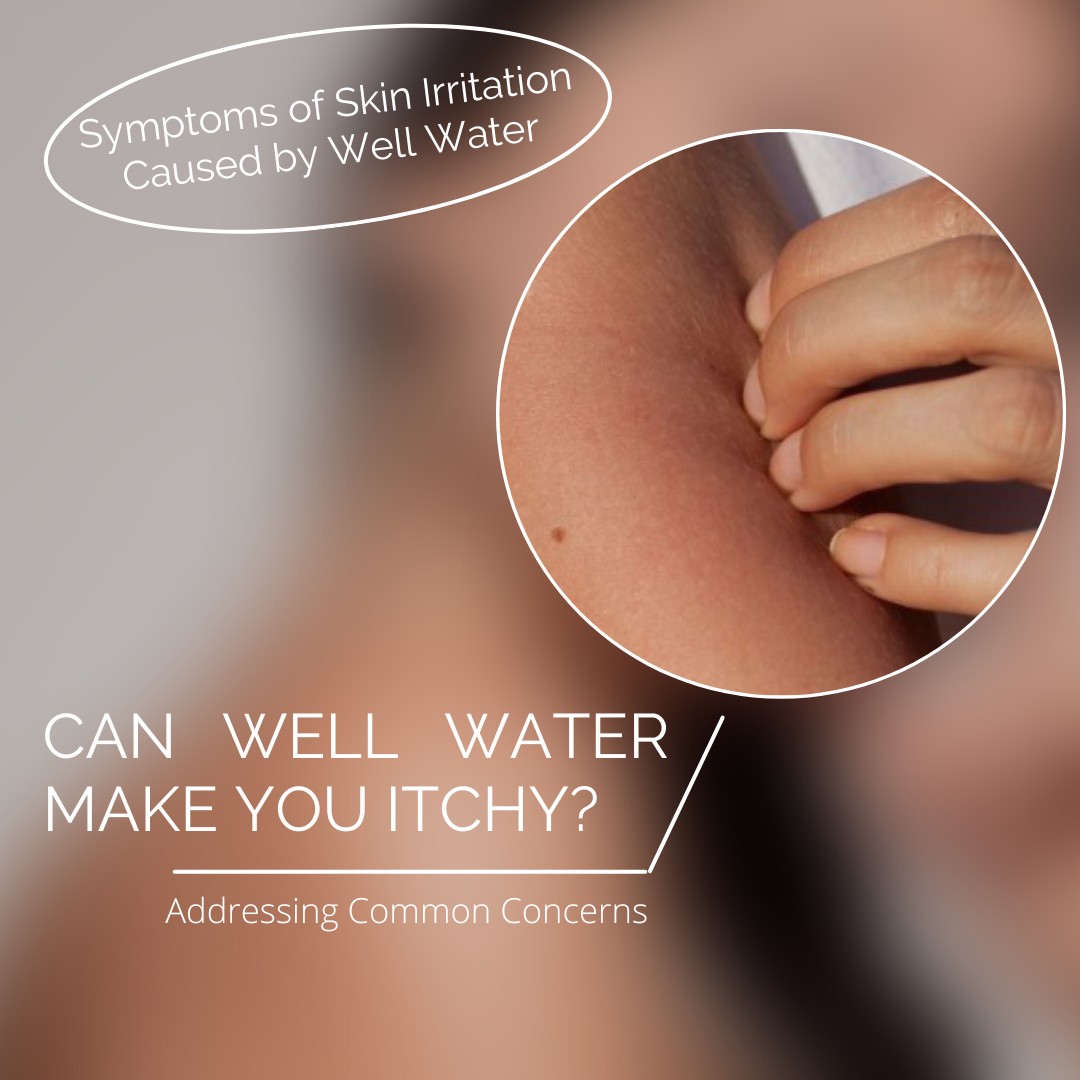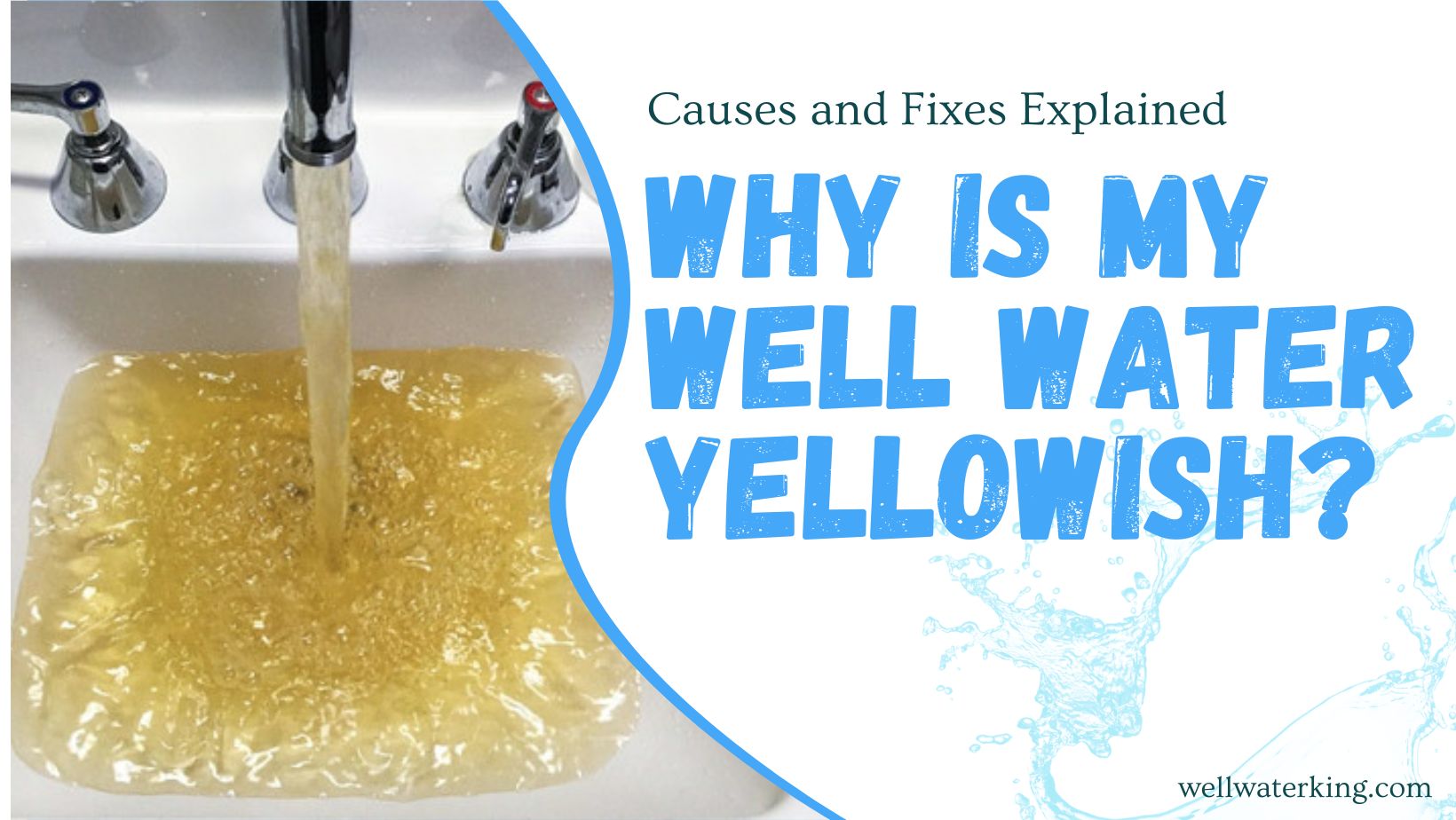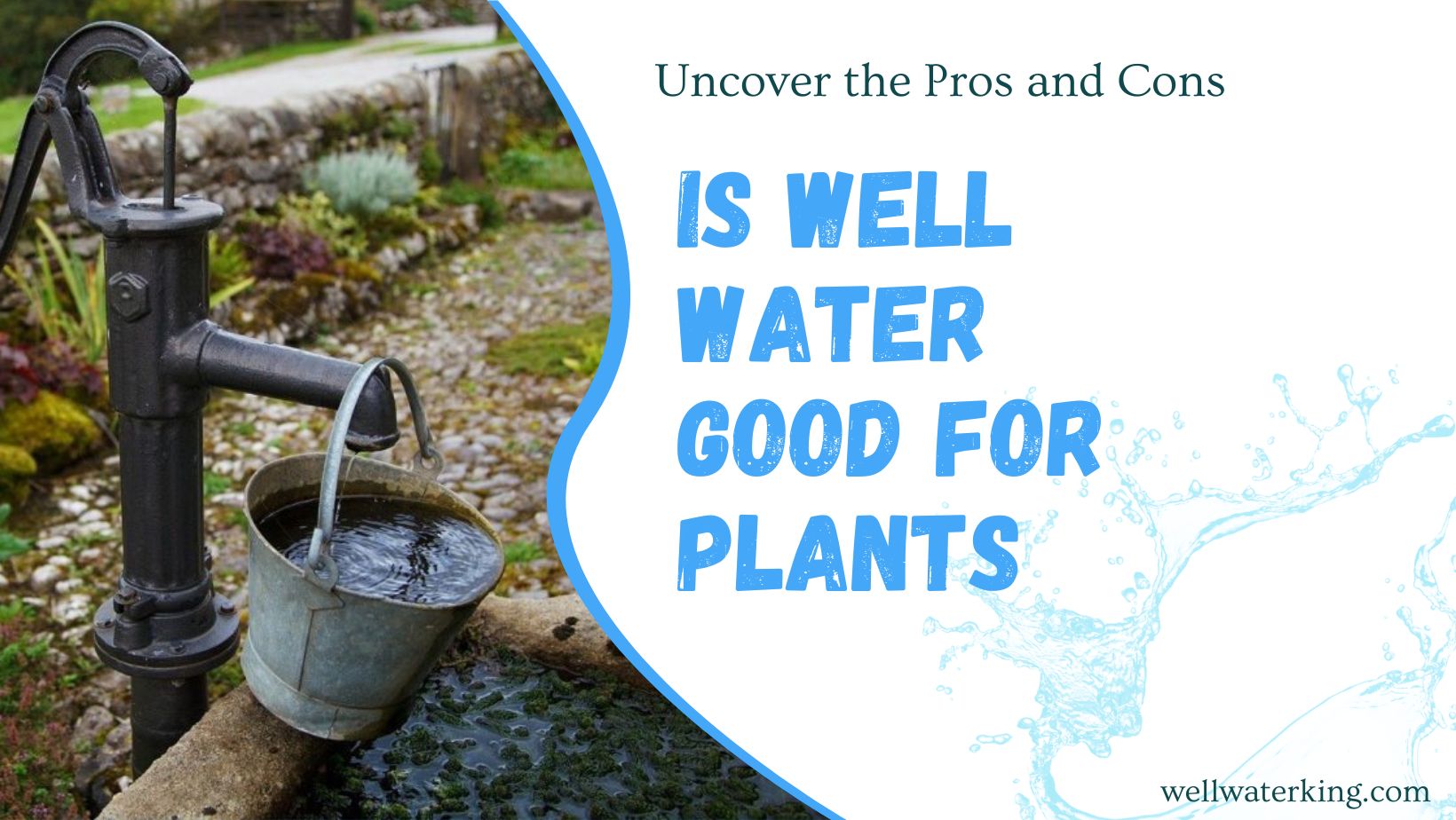When we think of well water, we often picture a pristine, untouched source, gushing straight from the earth’s depths—natural, clean, and untouched by modern pollutants. It’s easy to imagine this water as the perfect candidate for all our household needs, right? But here’s a question that might have you scratching your head: Can you use well water in a humidifier?
It seems straightforward, but the answer is riddled with intricacies surrounding mineral content, potential bacterial presence, and the mechanics of our humidifying devices. In this post, we’ll dive deep into the reasons why well water and humidifiers might not be the best match, the effects of using them together, and the optimal water choices to keep your air pure and your devices running smoothly. So, ready to unravel this liquid mystery?
What’s in Well Water?
First things first. Before pouring anything into our precious devices, it’s smart to know what’s inside, right? Let’s break it down:
| Component | Description |
|---|---|
| Minerals | Natural substances like calcium and magnesium. This gives well water its characteristic “hardness”. |
| Bacteria | Tiny life forms that might be harmless but can sometimes cause health concerns. |
| Sediments | Little particles like sand or dust that may settle at the bottom of a container. |
Well water can vary a lot, but these components are commonly found in many sources. They’re natural, but do we want them in our humidifiers?
Humidifiers: A Quick Refresher
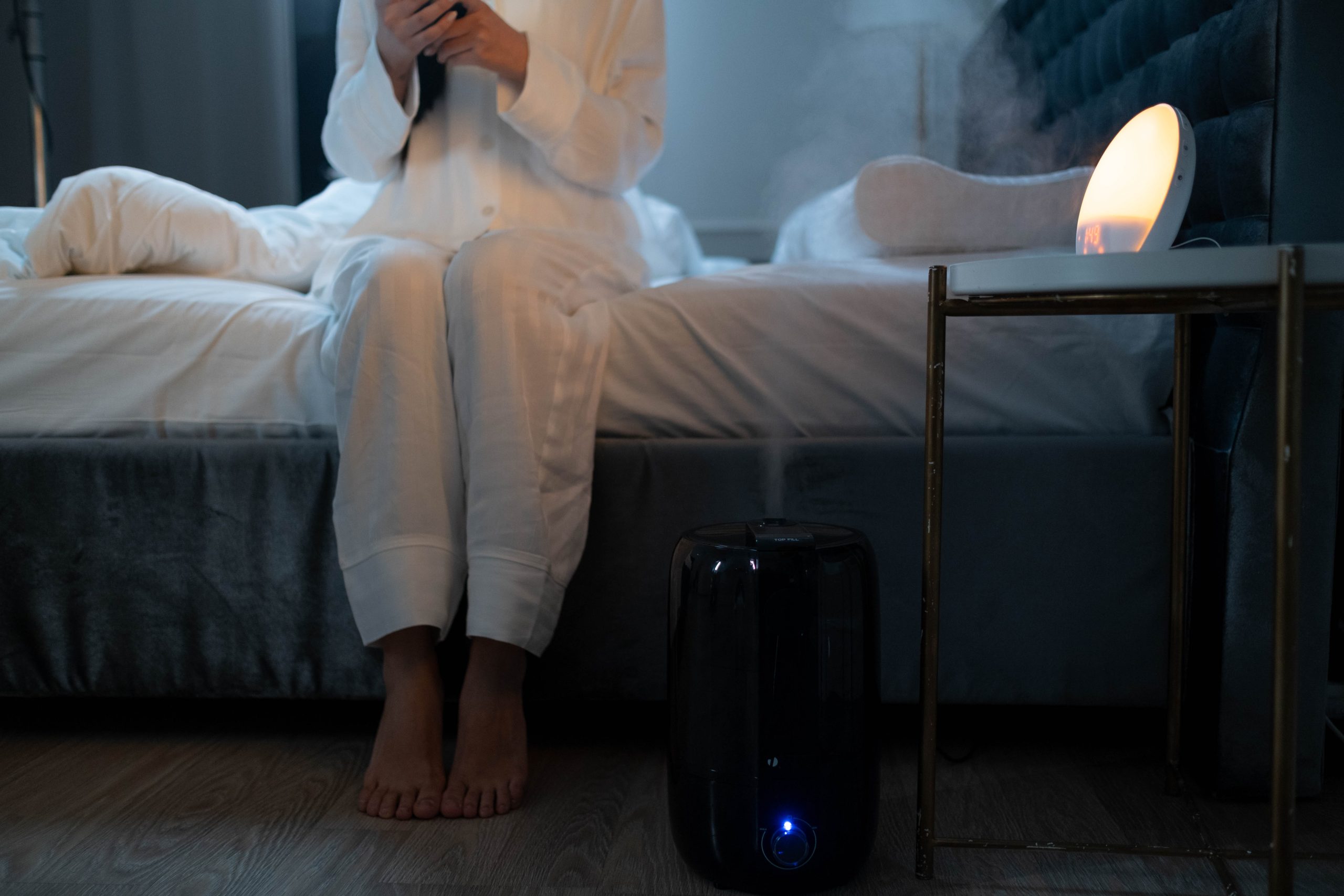
Humidifiers are nifty gadgets. They add moisture to the air, helping us breathe better and keep our skin hydrated. But they’re sensitive creatures!
Here’s what happens inside a typical humidifier:
- Water Input: You pour in water.
- Vaporization: The water gets transformed into mist or steam.
- Moisture Output: This mist is released into the air, making it more humid.
Simple, right? Now, let’s connect the dots.
Why Using Well Water in a Humidifier is Not Recommended

The idea might seem harmless at first. After all, well water is often deemed natural and fresh. However, when it comes to our trusty humidifiers, this might not be the best mix. Here’s why:
1. Minerals Galore!
Well water often contains minerals like calcium and magnesium. These are generally great for our bodies when consumed, but not so much for our humidifiers.
What’s the deal?
Well water is frequently described as “hard” because of its high mineral content, primarily calcium and magnesium. These minerals can be beneficial when consumed, but when they’re dispersed into the air through a humidifier, they behave differently.
What happens?
When the water evaporates, the minerals don’t. They remain and accumulate inside the humidifier as scales or deposits. Over time, these deposits can:
- Clog the humidifier’s filters.
- Restrict airflow, making the humidifier work harder and reducing its efficiency.
- Leave a layer of white dust (mineral residue) on nearby surfaces in the room, which can be problematic for electronics and might be inhaled.
| Issue | Outcome |
|---|---|
| Mineral Buildup | Leads to scales or white deposits inside your humidifier. |
| Release into Air | Sprays a fine white dust around your home, which can settle on furniture and can be inhaled. |
2. Bacteria Bonanza
While many bacteria are harmless and some even beneficial, the warm and moist environment of a humidifier can become a party spot for the ones you don’t want in your air.
What’s the deal?
While many bacteria in well water are harmless, the moist environment of a humidifier offers an ideal breeding ground, especially if the water isn’t changed daily.
What happens?
- Certain harmful bacteria can multiply in the standing well water within the humidifier.
- When the humidifier releases the mist, these bacteria get dispersed into the air, potentially leading to health concerns, especially for individuals with allergies, respiratory issues, or weakened immune systems.
| Issue | Outcome |
|---|---|
| Bacterial Growth | Humidifiers can become breeding grounds for harmful bacteria. |
| Health Concerns | Breathing in these bacteria can potentially lead to respiratory issues, especially for those with weakened immune systems or allergies. |
3. Sediment Settling
Those tiny particles that make well water look a tad cloudy? They’re sediments, and they’re not great news for machines.
What’s the deal?
Well water often contains sediments—tiny particles of sand, dust, and other contaminants that can’t evaporate.
What happens?
- These sediments can settle at the bottom of the humidifier or even get dispersed with the mist, leading to clogged nozzles or filters.
- Over time, the accumulation can reduce the effectiveness of the humidifier and require more frequent cleanings.
| Issue | Outcome |
|---|---|
| Clogging | Sediments can clog the filters and narrow passages of humidifiers. |
| Reduced Efficiency | Your humidifier might have to work harder, decreasing its lifespan. |
4. Hard Water Hassles
Well water is often termed “hard water” due to its mineral content. While this isn’t an issue for drinking, it’s a different story for appliances.
What’s the deal?
The components of well water don’t just affect the air quality; they can be harsh on the humidifier’s mechanics too.
What happens?
- The minerals in hard water can lead to corrosion or decrease the lifespan of metal or plastic parts within the humidifier.
- Continuous exposure to these elements can mean more frequent repairs or replacements, making it cost-ineffective in the long run.
| Issue | Outcome |
|---|---|
| Wear and Tear | The minerals can wear down the components faster. |
| Frequent Cleaning | You might find yourself cleaning the humidifier more often due to mineral deposits. |
What’s the best water to use in a humidifier?
The best water to use in a humidifier is distilled or demineralized water. Here’s why:
- Low Mineral Content: Distilled and demineralized water have had most, if not all, of their minerals removed. This means they won’t leave behind the white mineral dust commonly associated with tap or well water.
- Reduced Bacterial Presence: The process to produce distilled or demineralized water tends to remove most contaminants and bacteria, reducing the risk of them being dispersed into the air or breeding within the humidifier.
- Prolonged Humidifier Life: Using distilled or demineralized water minimizes the risk of scale and mineral buildup inside the humidifier, which can extend the device’s lifespan and reduce the need for frequent cleanings.
- Cost-Effective: While purchasing distilled or demineralized water might seem like an added expense, in the long run, it can save on maintenance, cleaning, and potential health costs associated with using untreated water.
In summary, while tap or well water might be convenient, to maintain optimal air quality and ensure your humidifier functions efficiently for years to come, distilled or demineralized water is the recommended choice.
Wrapping It Up: Well Water and Humidifiers
In our journey to understand the relationship between well water and humidifiers, we’ve unraveled some surprising truths. While well water’s natural allure might seem tempting, its high mineral content, bacterial presence, and sediments can pose challenges for your humidifying device.
- Mineral Buildup: Over time, minerals like calcium and magnesium can create deposits inside your humidifier, affecting its efficiency and leaving a white dust in your space.
- Bacterial Growth: The standing water inside humidifiers can become a breeding ground for harmful bacteria, which then get dispersed into the air you breathe.
- Sediment Issues: Sediments in well water can clog the components of your humidifier, leading to more frequent cleanings and potential malfunctions.
- Device Wear and Tear: The natural components of well water can accelerate the wear and tear on your humidifier, meaning more repairs or a shorter lifespan for the device.
In light of these insights, if you’re aiming for a long-lasting humidifier and a healthier indoor environment, distilled or demineralized water emerges as the better choice. It might be an extra step, but ensuring the best for your home’s air quality and your device’s longevity is worth it. Here’s to making informed choices and breathing easier!

